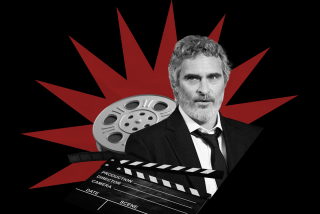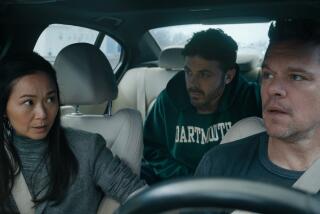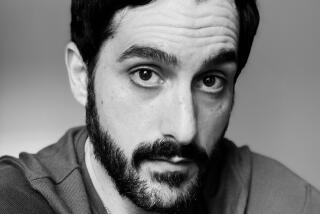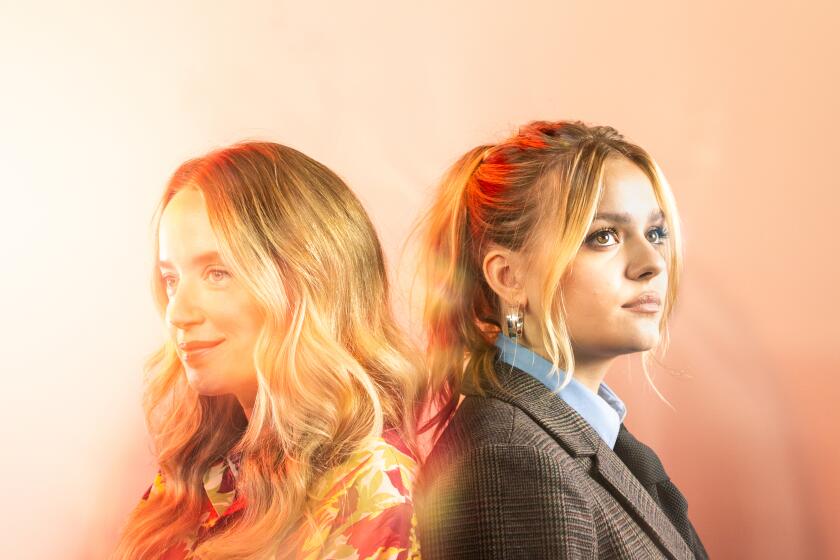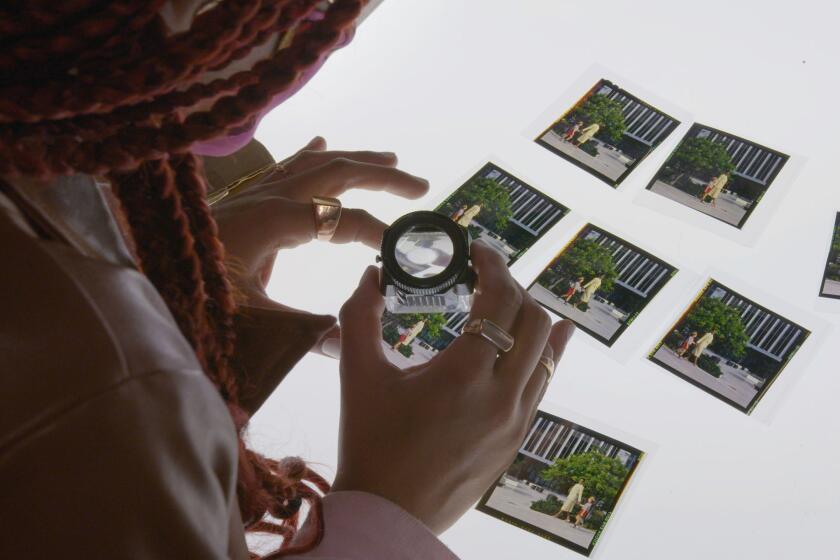Melancholy ‘Prince Avalanche’ comes out of nowhere
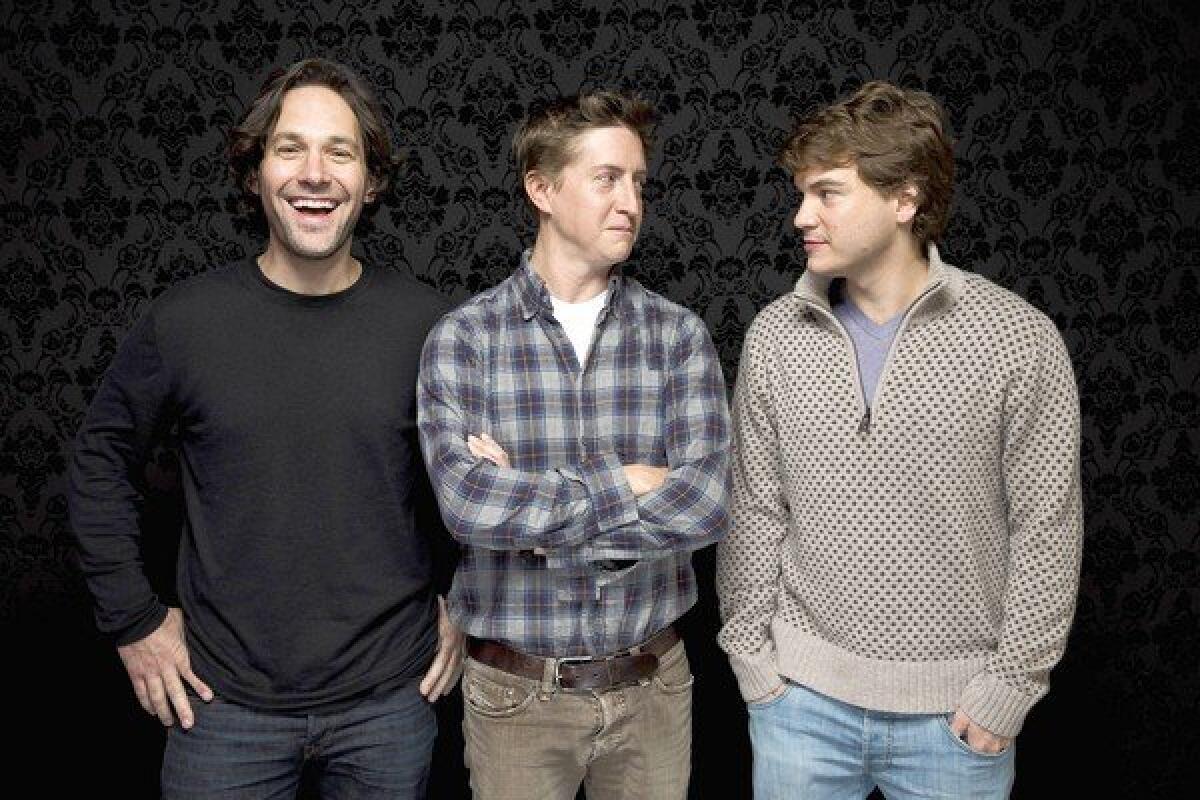
Before “Prince Avalanche” was selected for the Sundance Film Festival this year, few people even knew of its existence. This wouldn’t be surprising for a debut indie or foreign language import, but the film is written and directed by well-known filmmaker David Gordon Green and features popular actors Paul Rudd and Emile Hirsch.
Usually such a project might have been covered rather breathlessly online and speculated about in social media. It certainly seemed like more people would have noticed a film bringing together talent involved with such films as “Pineapple Express,” “This Is 40” and “Into the Wild.”
“It was a lot less talking about making movies and a lot more making movies,” said Green of the film’s off-the-radar creation. “It is entirely unusual that you could make a movie with as few phone calls as this. It was kind of a way to take everything we love about the production process and strip away the things that are frustrating.”
“Prince Avalanche,” opening in Los Angeles on Aug. 9, is a loose but respectful remake of an obscure 2011 Icelandic film “Either Way.” In Green’s film, two men work painting traffic lines on a remote stretch of road in Texas that cuts through a forest recently destroyed by a wildfire. Alvin (Rudd) is nursing a heartbreak, and the only person he has to talk to is his co-worker Lance (Hirsch), the reckless brother of his likely now-former girlfriend. The film is spare with an almost Beckett-like sense of the absurd, making for a gently melancholy humor.
The film was shot in 16 days — it finished two days ahead of schedule — for under $1 million. It was early in 2012 when Green, who currently lives in Austin, learned that Texas’ Bastrop State Park had been decimated by a wildfire, leaving it with a ghostly, otherwordly look. At that time he had watched the Icelandic film and he came up with the idea of using Bastrop as the setting for a remake of “Either Way.”
“What really spoke to me about the movie was I loved the story of a guy who gets broken up with. He’s brokenhearted and has to turn to someone, and that someone happens to be a jackass,” Green said. “There’s something about that strange, emotional, funny-sad thread that really got to me. I wanted to explore that within myself and these characters.”
PHOTOS: Hollywood backlot moments
Rudd and Hirsch had long wanted to work with Green, the 38-year-old filmmaker known for both indie and mainstream movies. All three have filmographies that include smaller and larger projects, and when Green reached out to the actors to see if they could participate in something on short notice, they both jumped at the chance.
“My enthusiasm on working with him was just to work with him. On what it was, I didn’t really think that far ahead,” Rudd said. “In truth I didn’t really know what this was going to be. He called me and asked if I wanted to go out in the woods for a couple weeks and maybe take cameras and make something.”
The film was shot quickly and Green was working on the sound mix by July 2012. As producer Lisa Muskat said, “We just kind of stepped out of the system completely.”
Green first emerged as a maker of quiet, poetic films such as “George Washington” and “All the Real Girls” and then the intense drama “Snow Angels” but has more recently been making large-scale comedies such as “Pineapple Express” and “Your Highness” as well as directing commercials such as a Chrysler spot with Clint Eastwood that premiered during the 2012 Super Bowl.
“Prince Avalanche” has been seen by some as a return to Green’s indie roots. Yet he doesn’t see the distinctions in his own work as quite so simplistic.
“I feel like this is kind of the culmination of all the types of films I’ve had the pleasure of making,” he said. “There’s a certain audience that would prefer maybe my independent-minded dramatic work and certainly a more mainstream audience that would prefer big-budget studio comedies, and I feel like this movie invites everybody to the same party for once. And that was unintentional.”
PHOTOS: Celebrities by The Times
Muskat has worked with Green from the earliest stages of his career on through larger projects such as the 2011 Jonah Hill comedy “The Sitter.” She sees connections across his diverse output.
“He does not ascribe to this ‘one for you, one for me’ dichotomy that other directors may mention or that some fans believe he’s doing,” Muskat said. “I really believe that he approaches every movie that he makes as a kind of similar challenge to himself.”
With “Prince Avalanche” — the title came to Green in a dream and is not directly referred to in the movie — the filmmaker strove to capture the spirit of the original film even as he allowed his own movie to veer off into tangents all its own. At one point writing appears as if by magic across a line of trees; in another Rudd comes across a woman sifting the remains of her burned-down house.
“I haven’t worked on that many movies that have had the freedom to change gears like that in the middle of the movie,” said producer Craig Zobel. He and Green have been colleagues since their days at the North Carolina School of the Arts. Green was an executive producer on Zobel’s 2012 film “Compliance” and so Zobel returned the favor by pitching in on “Prince Avalanche.”
As Hirsch noted, “I think because no one knew what we were doing, we sort of felt like we could do whatever we wanted.”
More to Read
Only good movies
Get the Indie Focus newsletter, Mark Olsen's weekly guide to the world of cinema.
You may occasionally receive promotional content from the Los Angeles Times.
